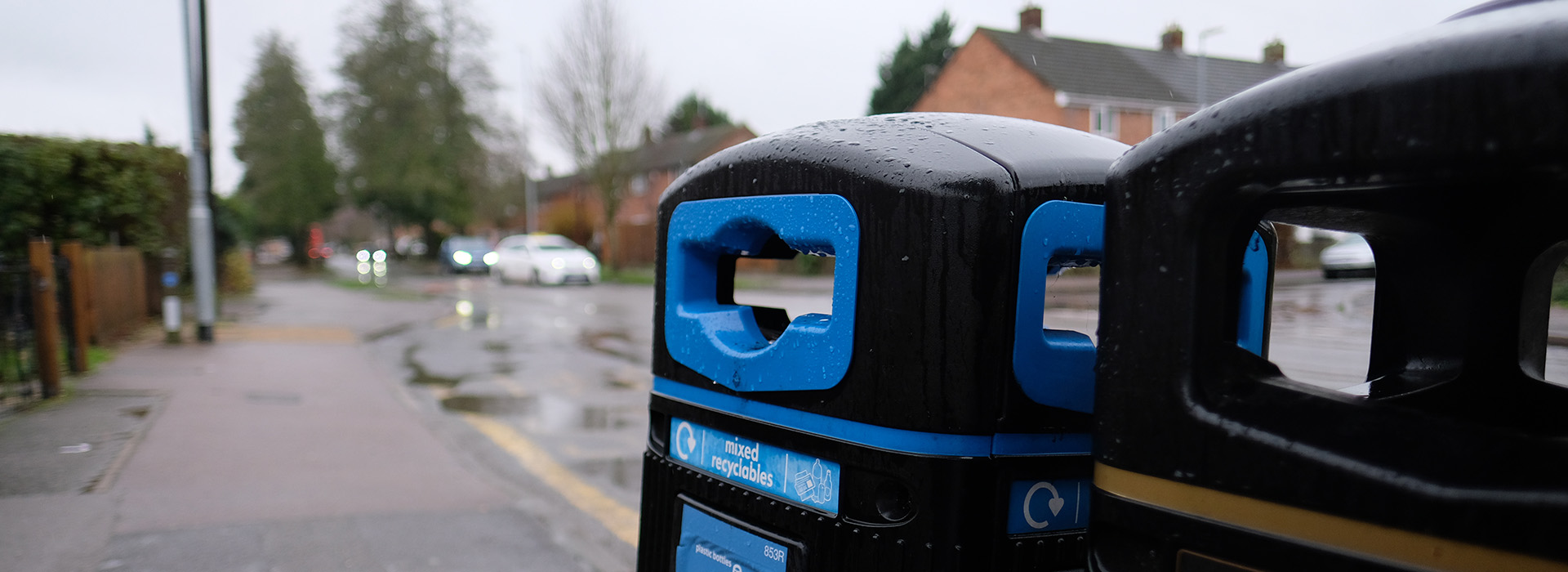How to Take the Complexity out of Recycling in the UK
As Executive Director of not-for-profit On-Pack Recycling Label (OPRL), Professor Margaret Bates is on a mission to deliver consistent and straightforward messages that promote recycling and reuse. A firm believer in taking personal responsibility for waste, she talks to dss+ on how refill is set to become recycling's best friend, the science behind product packaging, drones, and the power of labels.


Margaret Bates
Executive Director, not-for-profit On-Pack Recycling Label (OPRL)
Q.
Are we there yet on getting people to understand the benefits of recycling and how we can each play our part?
In terms of recycling success in the UK, it really depends on where you are in the country, with some parts of the UK more advanced in their understanding and approach than others. There's no doubt that recycling has a role to play in climate change initiatives, and for it to work requires us all to play a part. On this point, I think there's some way to go. At present, we tend to look for villains to blame rather than working together to create the facilities whereby recycling is not a chore or complex for users. Everybody has a responsibility, whether it's the need for local government to provide recycling facilities, brands using sustainable materials, responsible sourcing by retailers or consumers kicking their throw away culture and litter habit. Focusing on any one of these protagonists is not going to solve our recycling problems. We need to collaborate and encourage, rather than resort to finger-wagging.
"There's no doubt that recycling has a role to play in climate change initiatives, and for it to work requires us all to play a part."
– Margaret Bates, Executive Director, not-for-profit On-Pack Recycling Label (OPRL)
Q.
You mention our throwaway culture and litter habit. How can technology help reverse this in favour of recycling?
If we take time to understand why people litter, we can begin to address the problem. Artificial intelligence (AI) and drone technology are now helping us to do this. Several recent projects by Elipsis Earth have helped identify, map and track litter in towns and along coastlines using drones and machine learning. The findings present a fascinating picture of habits that include putting rubbish near a full bin instead of looking for a nearby emptier bin, or even people not understanding that leaving a cigarette butt on the beach is littering. This use of technology can help local authorities identify litter hot spots and step up enforcement and provide more bins and recycling facilities where they are most needed. These steps can then be followed up with messaging and signage to reinforce the benefits of recycling.
Q.
When it comes to packaging, the focus is on reducing plastic. Do you see this as the primary recycling solution?
I'd like to see a more sustained and sensible debate about packaging materials, rather than simply 'anything but' plastic. I'm not saying plastic is always the right solution, but it's not always the wrong solution either. Also, if you think that packaging is around 4% of the carbon footprint of our food, then we have a highly disproportionate focus on packaging. Food waste is a much bigger problem, and that's where innovative ideas on packaging materials and recycling can help. Yes, we need to encourage people to buy local and buy seasonal to eat on the day, but that's not always possible with busy lives. The science behind it says that suitable packaging can help reduce waste by prolonging the life of certain foods. So we have to face up to the fact that there isn't a one size fits all solution, and working with others on a broader range of packaging alternatives is vital.
"I'd like to see a more sustained and sensible debate about packaging materials, rather than simply 'anything but' plastic."
– Margaret Bates, Executive Director, not-for-profit On-Pack Recycling Label (OPRL)
Q.
OPRL launched a refill label in 2020. Can you explain the reasoning behind this and where it fits in the recycling toolbox?
There was a certain level of recognition that refills were becoming a serious trend, so, again, it made sense to come up with a single labelling system that was clear to the consumer. While it's still not quite mainstream, we have seen a steady stream of demand from brands and retailers for our refill labels. It was essential for us to get engagement from the wider value chain to sense-check our refill criteria. Providing robust evidence-based criteria was a crucial step in getting brands to take the idea on board. Along with our technical advisory board, we worked with external experts to test theories and ran consumer panels to finalise the design of the refill label. So it's not a question of refill over recycling; it's the opposite. We want people to have a range of options that supplement their recycling efforts, whether that's through refill or deposit return schemes (DRS). For these initiatives to work, consumers need to recognise and understand signs that show them their options easily.
Q.
Finally, what would your key messages be to get us all recycling more?
We need to take a step back and look at the problem through a different lens. Certainly, we need to be more tolerant of items we buy not being perfect, which is why packaging has become a big part of our lives. We want our food to look perfect, and we are now paying the price. We need to address this by getting into the recycling habit, which I think is achievable. Not that long ago, we wouldn't dream of checking we had a phone and charger when we left the house; now, it's more of a reflex reaction. We need to extend that habit to using innovative new recycling schemes popping up or keeping shopping bags, refillable water bottles and coffee cups on us, so we are not adding to the problem. We've all benefited from the convenience of packaging, but now it's time to change our behaviour and focus on the damage our waste is causing to the environment. We also need to promote good recycling behaviour, so more technology such as microchips in bins to measure and monitor people's waste and reward those that achieve good recycling habits. We also need to develop a UK-wide approach to how local authorities deal with waste so they can scale up, reduce costs and divert cash to societal needs such as care.
"We've all benefited from the convenience of packaging, but now it's time to change our behaviour and focus on the damage our waste is causing to the environment."
– Margaret Bates, Executive Director, not-for-profit On-Pack Recycling Label (OPRL)